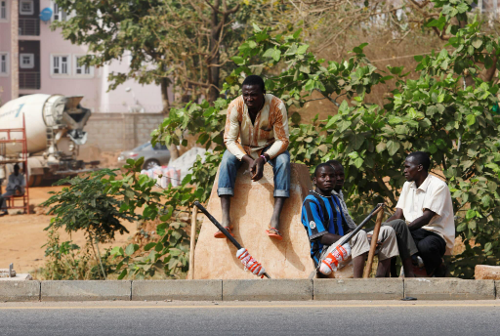Unemployment rates climb in Africa's two largest economies

TLDR
- South Africa's unemployment rate rose to 32.1% in Q4 2023, with sectors like community services and construction impacted.
- Nigeria's unemployment rate increased to 5% in Q3 due to the removal of a costly petrol subsidy, supported by President Tinubu.
- President Tinubu stands by reform decisions, emphasizing their role in attracting investment and enhancing government finances.
South Africa's unemployment rate ticked up to 32.1% in the fourth quarter of 2023, rising slightly from 31.9% in the third quarter, as per data from the statistics agency released on Tuesday. Various sectors, including community and social services, construction, agriculture, and trade, contributed to the uptick in unemployment, according to a presentation by Statistics South Africa.
Meanwhile, Nigeria saw its unemployment rate increase to 5% in the third quarter amidst a cost-of-living crisis following the government's decision to eliminate a popular but financially burdensome petrol subsidy. The unemployment rate climbed from 4.2% in the previous quarter, according to data released by the National Bureau of Statistics on Monday.
President Bola Tinubu has defended two major reforms—the elimination of the subsidy and foreign exchange controls—stating that although these measures may result in short-term hardships, they are crucial for attracting investment and improving government finances.
Key Takeaways
Nigeria, Africa's most populous nation with over 200 million people, has grappled with high unemployment for decades, a consequence of rapid population growth outpacing economic expansion. However, the unemployment rate experienced a significant decline from a record 33% in the fourth quarter of 2020, following the government's revision of the methodology for calculating the data in early 2023. Nonetheless, underemployment remains prevalent, with 87% of individuals being self-employed. In contrast, employment declined in the fourth quarter after eight consecutive quarters of growth, coinciding with a rise in the number of unemployed individuals to 7.895 million from 7.849 million in the third quarter. South Africa is poised to hold a national election this year, with high levels of unemployment and sluggish economic growth serving as perennial hot-button issues during the polls.

Next Frontier
Stay up to date on major news and events in African markets. Delivered weekly.
Pulse54
UDeep-dives into what’s old and new in Africa’s investment landscape. Delivered twice monthly.
Events
Sign up to stay informed about our regular webinars, product launches, and exhibitions.




